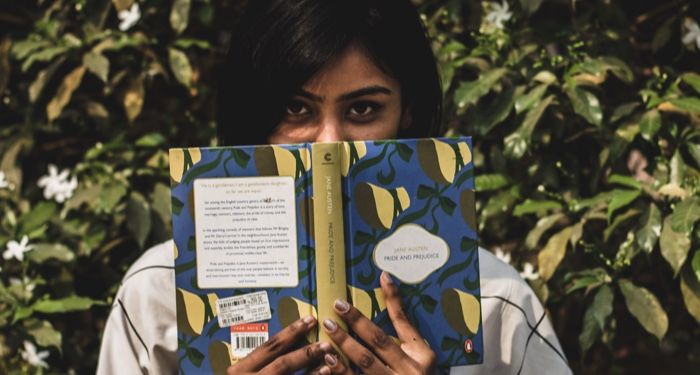
Of Small Town Book Fairs and Yearly Bookish Rituals
The small town in West Bengal, India, where I grew up had nothing going for it when it came to entertainment. The parks were few, movie theatres shabby, and malls and coffee shops non-existent. It was a rather drab place to be as a teenager, even though I personally did not mind much. I was content to spend lazy afternoons sitting in the window box of my room with a book, looking up only to gaze at the colorful winged inhabitants of the small tree grove formed by the garden of our house and those of three of our closest neighbors. This changed for seven to ten days every year, when my bookish interests aligned with a lively, festive space in the form of the annual book fair.
The book fair of my town recently completed its 37th edition. Small town fairs like this one have been a fixture in my state for quite sometime now. While not as large scale and glittery as the oldest international book fair in India organized in the state capital Kolkata every year, they have been instrumental in keeping the stereotypical bookishness of Bengalis alive, and in sustaining regional literature. In these smaller book fairs, where the interested book buyer is not dazzled by an assortment of international and national publications, regional literature enjoys its day in the spotlight.
Small publishers showcase their wares, and the range of books on sale is truly diverse. There are Indigenous publishers with books on Indigenous history and culture, in Bengali as well as in Indigenous languages, such as books written in the Ol Chiki script. There are tiny little magazine stalls where the aspiring writers publish their works. These stalls become the center of lively adda, or gossip sessions for the literary minded older people, and I have been surprised many a time by the sight of a friendly neighborhood aunty or uncle advertising a collection of poetry they had written.
During the days that the fair runs, it serves as a backdrop for all kinds of social interactions, and by virtue of this setting, books seep into many a treasured memory. Going on dates while still in school is taboo in Indian small towns, but the book fair offers a week-long sanctuary for starry-eyed young lovers. The chances of running into parents, and aunties and uncles of all kinds is high, but in the book fair, everyone looks the other way, with many parents no doubt thinking the kids are surrounded by books – what is the worst that can happen? Books are sacred among ambitious parents in the small town that produces top scorers in state and national level exam every year. Thus, my memories of my first date, and those of many of my peers, is not in a book shop, but in a book fair, getting to know a special someone who made my stomach flutter amidst thousands of books that vibrated with the possibility of all that we could see and do in the life that lay ahead of us.
I would plan my trips to the fair weeks in advance, and a minimum of three visits were mandatory. The first time would be with my friends, decked in our winter finery, sporting very glittery and very scratchy scarves, and ready to eye up a crush or to break off in couples. If we had enough money, we would buy racy Sidney Sheldon novels that were considered inappropriate by our families, and they would make very clandestine rounds in classrooms and street corners for months to come. The second time would be with my father. The book fair was a rare opportunity to try to bond with this otherwise distant figure in my childhood, to coax book recommendations from him, and to try to impress him with my taste in books. The third would be with my grandfather, dadu, to buy the picture books, comics and joke books, that I could not bring myself to petition my father for.
The excitement of the book fair did not end with the fair. Just like shopping for clothes only twice a year during festivals, all the major book shopping had to be done once a year, during the fair. In those pre-online shopping days, we read and we reread. We memorized sentences. I read with dadu. I discovered new worlds with him. We learnt about the fascinating world of atoms and molecules in Bengali non-fiction books. We dissected the language of the English books that we could lay our hands on, from the few book fair stalls that specialized in them, and snuck in newly learnt words in school essays that earned me pats on the back from my teachers.
I appreciate the range of book buying options that are now available to me courtesy of the internet, but the joy of being in town for the book fair is special. It is a chance to go back to the roots of my life-long love affair, to relive memories, to browse and pick up books that I had not heard of, to refresh my connection with the literature of my mother tongue. It is also a time for heartache – for my favorite reading buddy, the indulgent sponsor of books, my regular companion to the fair, my dadu, whom I lost in March 2020. I miss him every day, but I know he lives on. In all the stories that he told me, in all the books that we read together, and in every word I write.











